Recommended Books on Self-Confidence

Here are 11 books on developing a stronger sense of self-worth, the impact of which is greater self-esteem, confidence and authenticity.
Before I discuss the books, below I’ve listed 6 of my go-to tips on building greater self-confidence. I hope it serves as a handy guide whenever you’re in need of a confidence boost.
6 wonderful ways to start building confidence today:
- Become self-aware and act on what you need — not what you want. Be truly aware of what you think, need and feel and be brave enough to act on this (and this might not always be what you want — sometimes what you want can lead you astray.) This should be independent of what anyone else might want for you. This is true fulfilment and it’s often seen as the difference between those who truly practice self-love versus those who think they do.
- Learn self-care. Be mindful of your basic needs to stay healthy. These include proper nourishment, exercise, sleep and fulfilling social interactions.
- Establish boundaries. Set limits to activities (whether this is work or leisure) that deplete your energy, that cause more stress than it’s worth or that have the potential to self-harm. This can be either in a physical or mental capacity. It’s about self-respect, nurturing your needs and recognising your worth. This makes it easy to love yourself.
- Establish strong connections and bin those that are not serving you. The right people in your life hugely influence how much you love yourself. ‘Schadenfreude’ friends — friends who obtain pleasure from your misfortune or suffering are immediate red flags in your friend circle and should be removed immediately. Life is too short. You need people who will support you during tough times and who are also there to celebrate with you during happy times. You’ll have a lot more self-respect as well as self-love.
- Let go. Forgive yourself for the mistakes you’ve made, for the negative consequences of bad decisions and for the pain and suffering you might have brought on yourself or others. Accept your humanity, be compassionate towards yourself — this enables self-love. Growth is found in failure.
- Live your purpose and values. Purpose gives us meaning — if we find this and fulfil our values — we truly thrive — and we can’t help but love ourselves. This offers us true validation and a sense of accomplishment.
NON-FICTION BOOK RECOMMENDATIONS ON BUILDING SELF-CONFIDENCE
(a) The Six Pillars of Self-Esteem (Non-fiction) by Nathaniel Branden
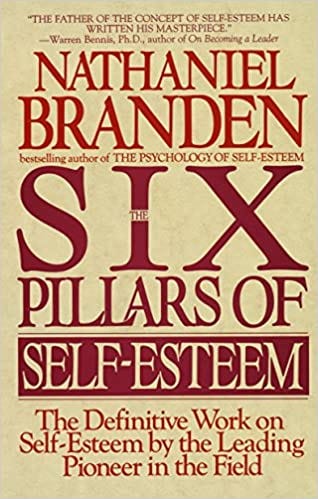
A life’s work on self-esteem. Nathaniel Branden’s book gives us an enormous amount of material both in terms of breadth and depth on the 6 principles that form the foundation of self-esteem and also the importance of self-esteem in both our personal and professional lives but also at a macro level within the societies and cultures we. breed.
He advocates the following 6 pillars for building self-esteem:
- Living Consciously — living in the moment, observing and honouring our feelings as they arise, both positive and negative and be willing to confront assumptions and beliefs that no longer serve us.
- Self-Acceptance — being self-compassionate to ourselves and loving ourselves as we are. Knowing we are worthy of having our needs met.
- Self-Responsibility — having a sense of agency and being able to act independently to meet our needs, taking action as needed.
- Self-Assertiveness — honouring our needs and values and being true to these. Not denying or ignoring them and having the courage to act in ways that allow us to meet these needs and values, including confronting others if needed.
- Living Purposefully — having a sense of purpose and meaning, enhances our self-worth and self-esteem. Strike a balance between living in the present and having goals for the future.
- Personal Integrity. Acting in line with our own personal and professional values and goals. This is the key to leading a more authentic life, one that’s true to ourselves and to others, even if it means setting strong boundaries or creating conflict that might be painful.
A comprehensive book on self-esteem, that is worth a read, if you’re looking to understand the basics of how we develop our sense of self-worth.
(b) Psycho-Cybernetics (Non-fiction) by Maxwell Maltz
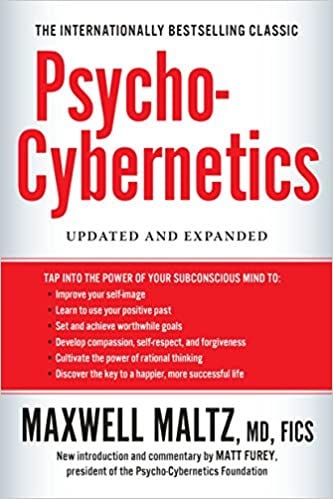
Originally published in 1960, Psycho-Cybernetics is a term coined by Dr. Maxwell Maltz literally translated from Greek to steering your mind towards peace in a productive and useful way.
Maltz researched and concluded that the self-image can have a significant impact on whether an individual fails or succeeds in their goal(s). He then went on to develop techniques that would assist with building this positive self-image from visualization, mental rehearsal and relaxation. These techniques have inspired sports psychologists, life coaches and other mental health professionals through the decades.
60 years on, the research still stands and is a wonderful book on reframing the way we see ourselves so that we can function more optimally.
(c ) The Gifts of Imperfection: Let Go of Who You Think You’re Supposed to Be and Embrace Who You Are (Non-fiction) by Brené Brown
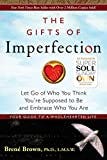
Forbes recently named this book, one of the “Five Books That Will Actually Change Your Outlook on Life “.
Through honest storytelling and research, Brown offers much-need reassurance, support and clear pathways to embrace our imperfections and societal expectations so that we are free to be whoever we want to be with zero guilt. This book I believe will really help you stay focused on building a life of inner fulfilment through building a relationship with yourself. Our relationship with ourselves is the most important one; and sets the standards for our relationships with others, contributing to our overall sense of satisfaction.
(d) Daring Greatly (Non-fiction) by Brené Brown

With 10k+ positive reviews on Amazon, it’s a phenomenal resource on boundary setting, having the courage to be vulnerable and putting ourselves first. A wonderful book on building stronger, more meaningful relationships and setting boundaries to empower you, rather than leave you overwhelmed with guilt. It’s a book I wish everyone would read.
(e) The Confidence Gap: A Guide to Overcoming Fear and Self-Doubt (Non-fiction) by Russ Harris
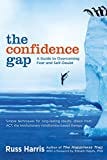
Perfect for people who want to develop long-lasting confidence, through the use of Acceptance and Commitment Therapy (ACT) and mindfulness practices. Often a lack of self-confidence can mean missed opportunities as we don’t pursue the career or relationship we hope for, as we feel inadequate or are anxious that we won’t be able to handle the complexities associated with taking meaningful and important risks that lead us closer to our goals.
Russ Harris advocates embracing and honouring our fears — for when we accept these, only then do we feel more confident and free in acting in ways that progress our goals and aspirations.
He focuses largely on the techniques of ACT, which is a subset of cognitive-behavioural therapy (CBT) and mindfulness.
(f) The Happiness Mindset (Non-fiction) by Bijal Shah
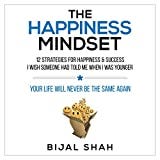
This is a book I’ve written based on my own life experience and wisdom. Universal experiences such as relationship breakups, facing rejection at school or at job interviews, betrayal by a friend or a lover, suffering financial loss or falling seriously ill can be heart-breaking. This book includes 12 life strategies designed to help us discover our own values, likes, dislikes, goals and build our own sense of self.
(g) The Imposter Cure (Non-fiction/Self-help) by Dr Jessamy Hibberd
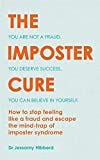
Imposter syndrome, the psychological mind-trap that affects so many of us is a phenomenon that’s all-consuming, as we consciously worry that our shortcomings will be exposed, making it hard to enjoy any element of success or accomplishment.
Dr Hibberd uses helpful case studies and practical tips to boost our confidence and become more fearless and unapologetic in how we perceive ourselves. She challenges us to focus on our fears that are driving this feeling of being a fraud and requires us to reframe our narrative, see things from a different perspective, work on our self-esteem and self-belief so that we can see ourselves, the way others do — as accomplished people, deserving of our success or skills.
At the end of the day, we all have doubts and overcoming these is the key to successfully navigating imposter syndrome. I hope this book will be the perfect addition to the other books here.
(h) The Four Agreements (Non-fiction, Personal Development) by Don Miguel Ruiz
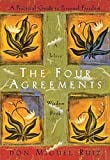
This is the perfect guide on discovering yourself and living a life more aligned with your own values — where you are empowered to experience more freedom, happiness and, love. The guide draws on ancient Toltec wisdom, combined with modern-day philosophy and wisdom bringing readers closer to personal freedom. I hope you find this incredibly helpful and optimistic Claudia.
(i) The Self-Love Experiment: Fifteen Principles for Becoming More Kind, Compassionate, and Accepting of Yourself (Non-fiction) by Shannon Kaiser
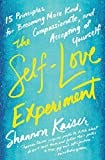
As part of a personal experiment, Kaiser presents a plan focused entirely on self-compassion to remove negative thinking and inspire a love of life. She advocates the practice of daily self-love through conscious habit and perspective. The narrative takes you on a journey towards self-compassion and self-acceptance and I would recommend this as an initial read.
FICTION BOOK RECOMMENDATIONS ON BUILDING SELF-CONFIDENCE
(a) I Was Born for This (A Novel) by Alice Oseman
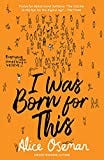
“ I was born for this. I am not a person who is sitting around, waiting for something to happen. “
The novel opens with 16-year-old Alice Oseman’s declaration of her ultimate destiny: the music world. She tells us about her first gig as lead singer in an indie band and how she came to be writing songs with her best friend, drummer Jonny Whitehall. Her account of life on tour is fraught with frustration that comes from being outshone by Alex Fierro, the charismatic guitarist and songwriter, but also laced with moments of joy when they perform their catchy pop tunes at venues across England. The highs are punctuated by lows — arguments between bandmates over artistic control, members leaving to pursue other projects, and Alice’s longing for her long-distance love.
The novel is told in a series of vignettes that interspersed with the band’s rise are scenes from a 16th birthday party thrown by parents who just don’t understand their daughter anymore; awkward conversations about sex with mentors at school; an emotional confrontation with Alex on stage during a gig when she can no longer hold back her own feelings. We also meet Alice as a teenager dealing with panic attacks, navigating relationships fraught with miscommunication or misunderstanding (friendships as well as romantic), which makes it difficult but incredibly important for them all to find themselves on this often, rocky road.
(b) Symptoms of Being Human (A Novel) by Jeff Garvin
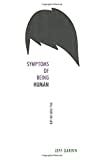
There are two types of people in this world. Those who can’t wait to experience the joys and sorrows of living, and those for whom life is a daily struggle.
The protagonist of Symptoms of Being Human by Jeff Garvin, Riley Cavanaugh, falls into the latter category. The book tells the story about finding out that they are gender fluid but not being able to share their true self with anyone because society has made them feel as if they have no right to exist; instead of turning to an anonymous online blog where they post feelings that they’ve bottled up, cataloguing extreme anxiety at school and bullying for being different.
A moving story about acceptance and belonging, Riley’s own experiences of panic attacks might strike a chord with readers, offering ways to cope and overcome these and perhaps offer clues on the roots of your own fears — whether that’s feeling like an outsider, just plain different or having to deal with life’s many challenges.
You might also find the following reading list on Self-Love helpful.
More book prescriptions can be found at our A-Z of Book Prescriptions.
A big hello and thank you for reading! Passionate about literature, psychology, and life I launched Book Therapy as an alternative form of therapy using the power of literature. I train mental health professionals, librarians, teachers as well as readers on using bibliotherapy in their own work through our online Bibliotherapy, Literature and Mental Health course. We also curate reading lists/personalised book prescriptions for clients based on their individual needs. This is our signature personalised reading service.
You can also check out Book Therapy’s other free reading lists and A- Z of book prescriptions (covering both fiction and non-fiction). These suggest books based on your existing life situation (e.g. anxiety, job change, relationship heartache) as well as interests (e.g memoir, historical fiction, non-fiction, crime etc). There’s also a Children’s A — Z of Book Prescriptions. Feel free to check out the blog for more literary gems. There’s also a post on my personal story of how I entered the world of bibliotherapy and book curation.
In this role, I have had the opportunity to publish a book called The Happiness Mindset, and write various literary essays and pieces for newspapers and magazines. I have undertaken bibliotherapy workshops for The United Nations, various libraries in New York and corporate organisations in the UK and US. My book recommendations have featured in the Guardian, Marie Claire, NBC News, Asian Voice, New York Observer, Sydney Telegraph and various other publications. If you are a parent you might enjoy a podcast I’ve recorded with speech and language therapist Sunita Shah on Raising A Reader & Storyteller. And if you’d like to connect, email me at bijal@booktherapy.io or www.booktherapy.io.
Book Therapy is a participant in the Amazon EU, US and Canada Associates Programme, an affiliate advertising programme designed to provide a means for sites to earn advertising fees by advertising and linking to Amazon.co.uk, Amazon.com and Amazon.ca
